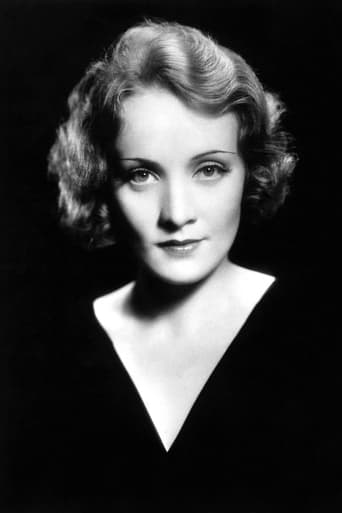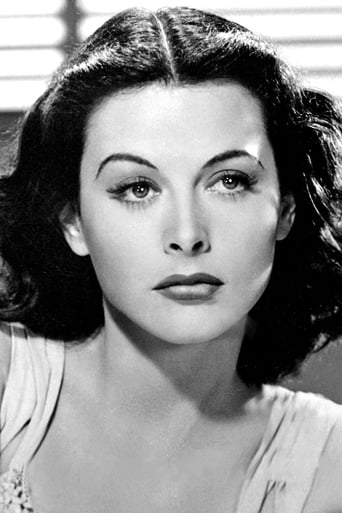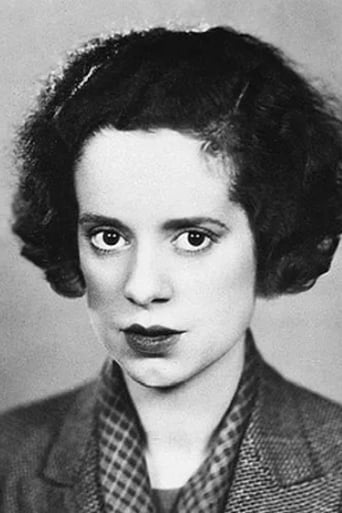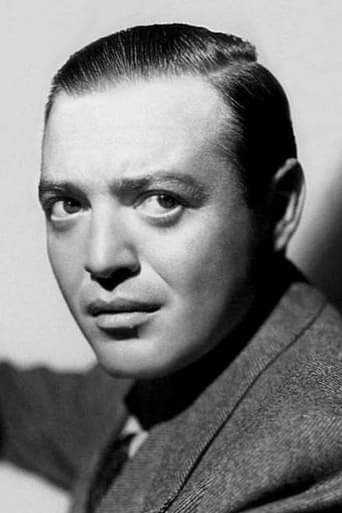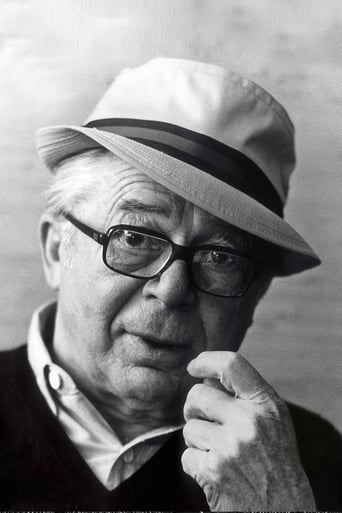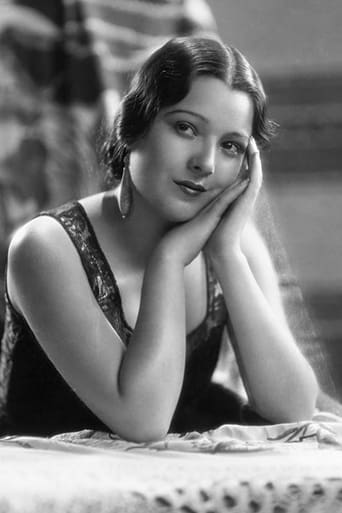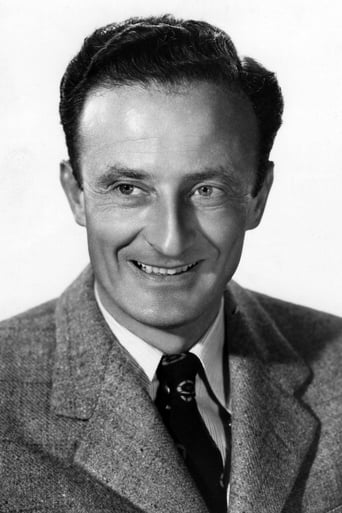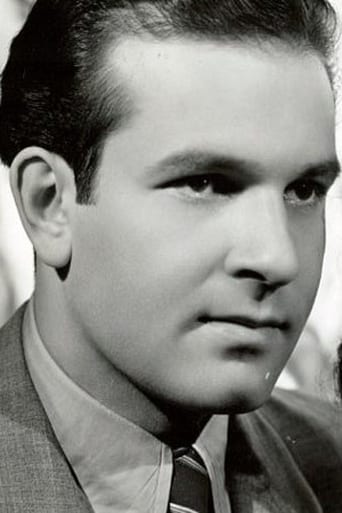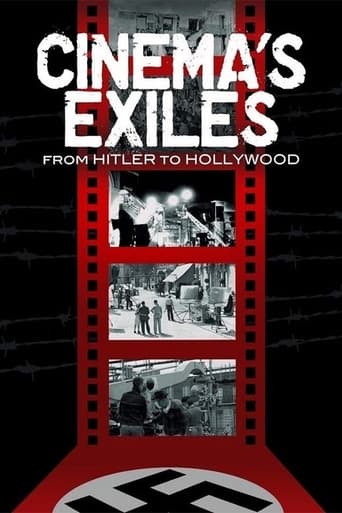
Cinema's Exiles: From Hitler to Hollywood
January. 01,2009Eight hundred German filmmakers (cast and crew) fled the Nazis in the 1930s. The film uses voice-overs, archival footage, and film clips to examine Berlin's vital filmmaking in the 1920s; then it follows a producer, directors, composers, editors, writers, and actors to Hollywood: some succeeded and many found no work. Among those profiled are Erich Pommer, Joseph May, Ernst Lubitsch, Fritz Lang, Billy Wilder, and Peter Lorre. Once in Hollywood, these exiles helped each other, housed new arrivals, and raised money so others could escape. Some worked on anti-Nazi films, like Casablanca. The themes and lighting of German Expressionism gave rise in Hollywood to film noir.
Similar titles
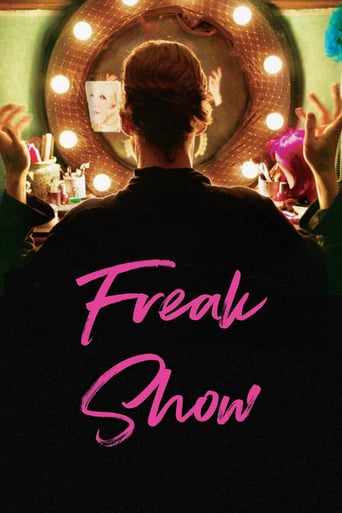


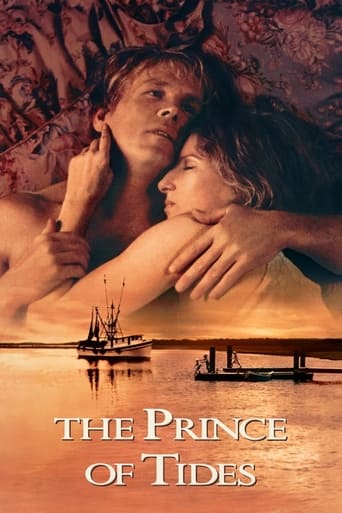
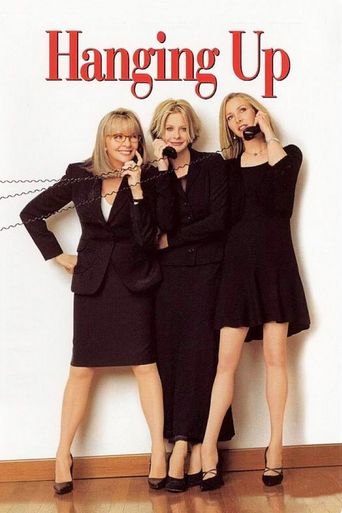
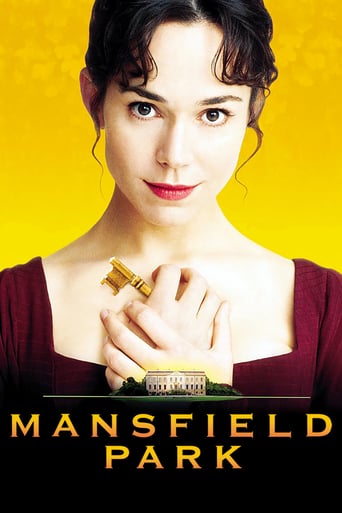

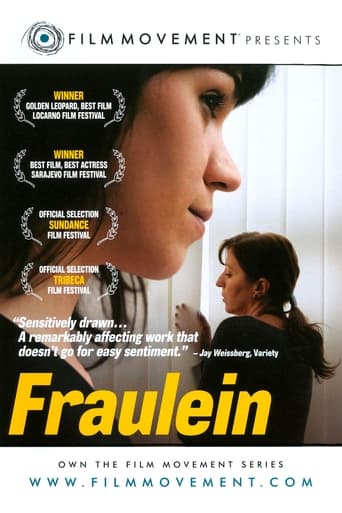
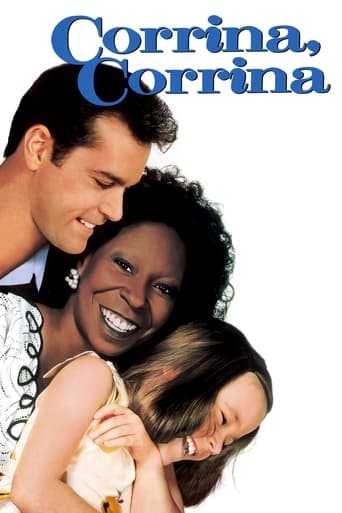
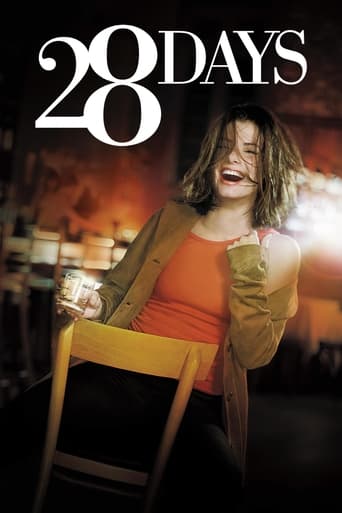
Reviews
Really Surprised!
hyped garbage
If the ambition is to provide two hours of instantly forgettable, popcorn-munching escapism, it succeeds.
A terrific literary drama and character piece that shows how the process of creating art can be seen differently by those doing it and those looking at it from the outside.
Movie actors, directors, studio heads, producers, composers, technicians. So many famous names, even more obscure names, but our cinema would not have been the same without them. The European expressionism of the 1920's and '30s took Hollywood by storm just as Nazism had taken Germany and later a good deal of Europe by storm. The personal experiences of the writers, directors and producers influenced their American works, so through hideous inhumane experiences, these filmmakers created some of the greatest examples of art that cinema has known.With sincere narration by Sigourney Weaver, this documentary shows that art and history intertwined. Many left before the rise of Hitler, while others made it to Hollywood as refugees, most Jewish, some married to Jews, and others simply against the fascism taking over their homeland. It's sad yet at the same time triumphant, because it's about survival. Vintage photos and filmed personal footage, newsreels and movie clips, plus interviews with witnesses who were there. Lupita Tovar Kohner, who just passed away at the age of 106, risked her own safety and tells her side of the story, bringing cash out of Germany to aide her friends who had already left. Marlene Dietrich, already an American star, aided refugees and was branded a German traitor. The documentary shows the rise of the German cinema after their loss of World War I, yet the creators of these classics ended up as targets simply for being Jewish. The influence on post Nazism Hollywood through the triumph of these refugees is then documented, as is how they used their passion for freedom to tell so many classics during the second world war. Lines in the scripts of their films do not deny their hatred of fascism. German actors, once the great stars of screen and cinema there, were not afraid of villainizing the Nazi. Other films using anti-Nazi allegories are explained, enlightening the audience to something they may not have picked up at the time. They do not go into the anti-Semitic backlash of the post year wars, but in 2 hours, there's enough material to give an idea of how these artists made an impact on the films of the time. Made in 2009 70-80 years after this all occurred, this is especially potent today in the changing times the world is facing every day. This is still in the lifetime of many people still living, so there's a lot of important lessons to be had. Cinema entertains, certainly, but it also educates and humanizes an often cruel world. It reminds us through our humanity, creativity and spirituality to never let any single leader in our world dictate who will be top dog in society and who will be degraded and turned over to evil lawmakers to be tortured and killed. They say art imitates life, and with the passion of freedom, life as many had to suffer through will simply remain as pages in a history book.
Cinema's Exiles: From Hitler to Hollywood is a 2009 documentary about the wave of Germans and Austrians who came to America during the time of Hitler and attempted to establish new lives and careers here: Billy Wilder, Fritz Lang, Henry Koster, Robert and Curt Siodmak, Joe May, Frederick Hollander, S.Z. Sakall, Peter Lorre, Paul Henried, Ernst Lubitsch, Fred Zinnemann, Conrad Veit, and hundreds of others.The documentary talks about the work of Paul and Lupita Kohner, Marlene Dietrich and several others who helped people leave by sending money, sneaking money (Lupita wrapped it in her knitting), giving them a place to stay, and writing sponsorship letters. A special fund that was set up where those who were working contributed so that those who were not could survive. Kohner, in the meantime, went to the studios and begged them to hire the immigrants.Erich Korngold was asked to orchestrate Robin Hood and refused; he returned to Germany, realized what was going on, and returned, Robin Hood looking very good to him. It was said, "What Warners couldn't do, Hitler did."It's a fascinating story of how some people could adjust and others could not; some were successful and some weren't. Some returned to Germany after the war; some returned and went back to Hollywood, as Peter Lorre did.Some of these people, like S.Z. Sakall, had been huge stars in Germany; Fritz Lang made some wonderful films in Hollywood but never topped Metropolis. Joe May was relegated to horror films after being at the top of his field in Germany.Karen Thomas has written a fascinating documentary about this group of people banding together and being helped by new Hollywood friends to assimilate. They gave the American film industry the gift of film noir and some of the techniques they brought with them, and made a big contribution -- something none of them could have dreamed of when they landed here with very little.Really wonderful and a must for film buffs.
It's a fine historical documentary of the fate of Jewish musical and cinema artists before, during, and after the reign of Adolf Hitler.In the 1920s Berlin was a major European cultural center for the arts and for science. German silent movies were among the most innovative being produced. Of course the economy was in terrible shape, with Germany having to pay reparations for World War I, a hyperinflation that made it cheaper to paper the walls with bills rather than try to buy something with them. They literally weren't worth the paper they were written on.And yet the city pulled out of the depression, especially when Hitler put the citizenry to work building war materials. At the time, the Jews of Germany were highly assimilated and not very religious. However if you're going to mobilize the masses, demonizing a minority is a good place to start.The imposition of strict laws regarding Jews, the confiscation of their goods, and later their imprisonment and what followed, led to an exodus of Germans, including but not limited to German Jews. It wasn't even necessary to be a practicing Jew. A taint in your ancestry could do it -- rather like having a black grandfather in America at the time.Most fled to Los Angeles where the documentary candidly admits that not all of them made it. It's difficult at any age to invent a new identity in an unfamiliar environment, one where you don't know the language, but it was especially difficult for the Germans were were by this time middle aged. You can do a lot of things when you're twenty-one that you can't do at forty.The losses of Germany, Hungary, Poland, and Austia were Hollywood's gains. The exiles brought with them the techniques they'd learned in the old country -- expressionism, spookiness, a cynical spirit, and film noir.The exiles and their careers, some better known than others, included Fritz Lang ("Woman in the Window"), Billy Wilder ("Some Like it Hot"), Franz Waxman (composer for "Rear Window"), and Fred Zinnemann ("High Noon") among others. We see still photos, home movies, and some older interviews.It's very well done. It's candid and perceptive and without bathos, and it's a must for any movie buff.
Cinema's Exiles: From Hitler to Hollywood (2009) *** 1/2 (out of 4)Sigorney Weaver narrates this well-made documentary that takes a look at the impact Hitler and his Nazi party had on the talented group of filmmakers who soon fled Germany and headed to the United States.If you're a film but then you're certainly going to love this documentary as it starts off talking about various German films and the impact they had on their country and others. We then hear about the rise of the Nazi party and how the money dried up in Germany, which had filmmakers like Fritz Lang, Marlene Dietrich, Peter Lorre, Ernst Lubitsch, Billy Wilder and others heading to America. Once in America we see how the talent got along in the Hollywood system and what they did once World War II started.There's a lot of great footage to countless movies but there are also some great archival interviews from the filmmakers themselves. There's a lot of great information here as well as some great footage of the celebrities working benefits during WW2.
Top Streaming Movies














